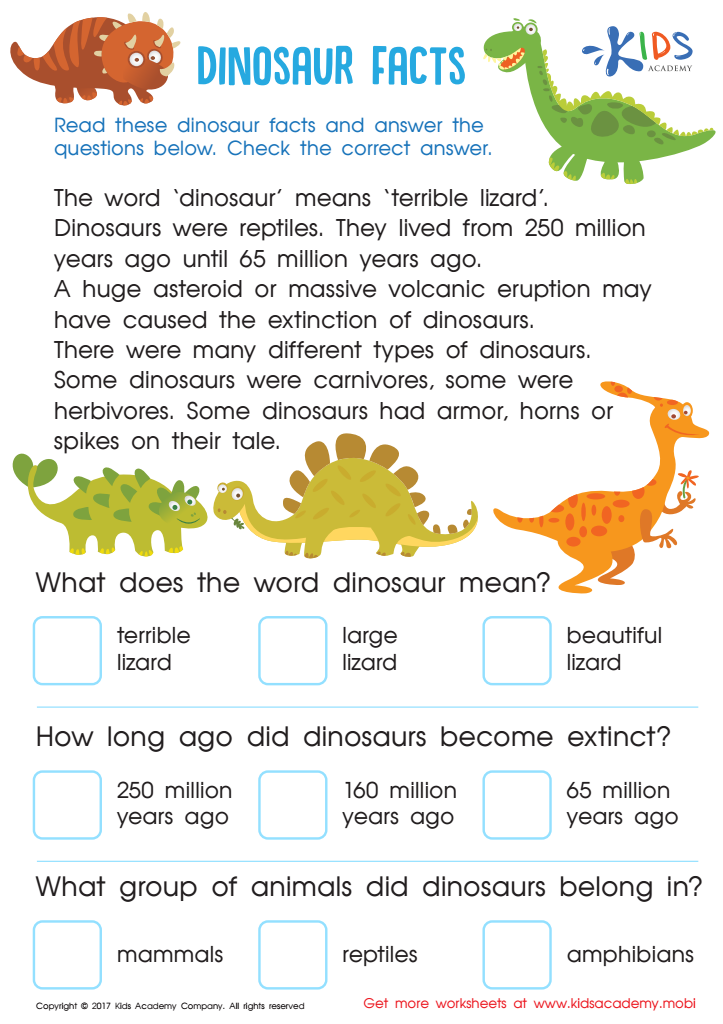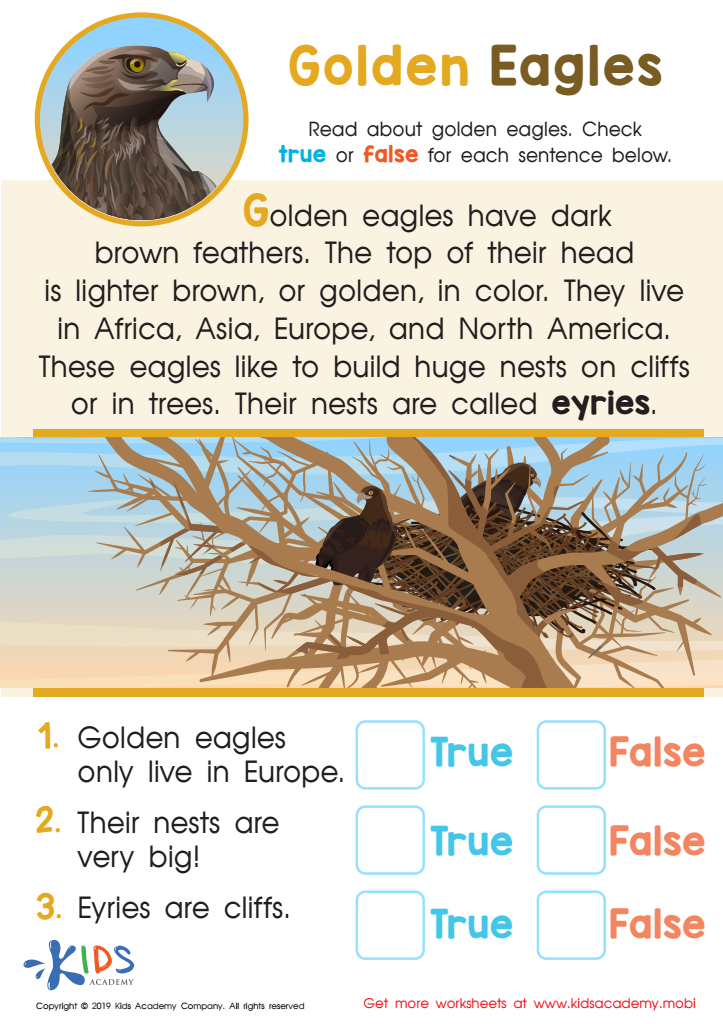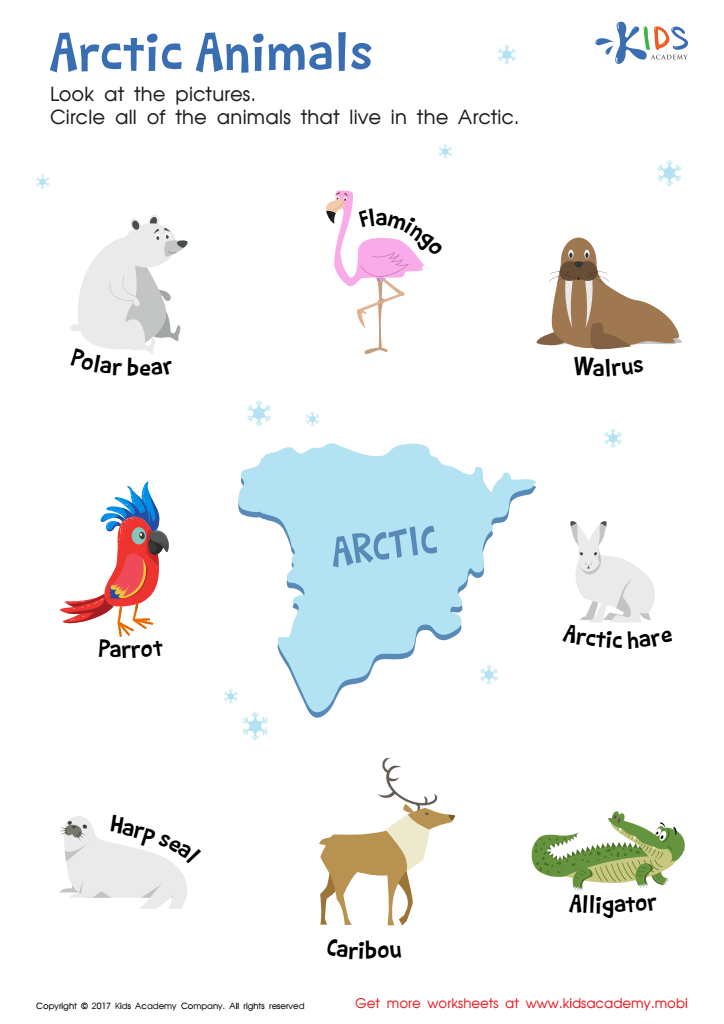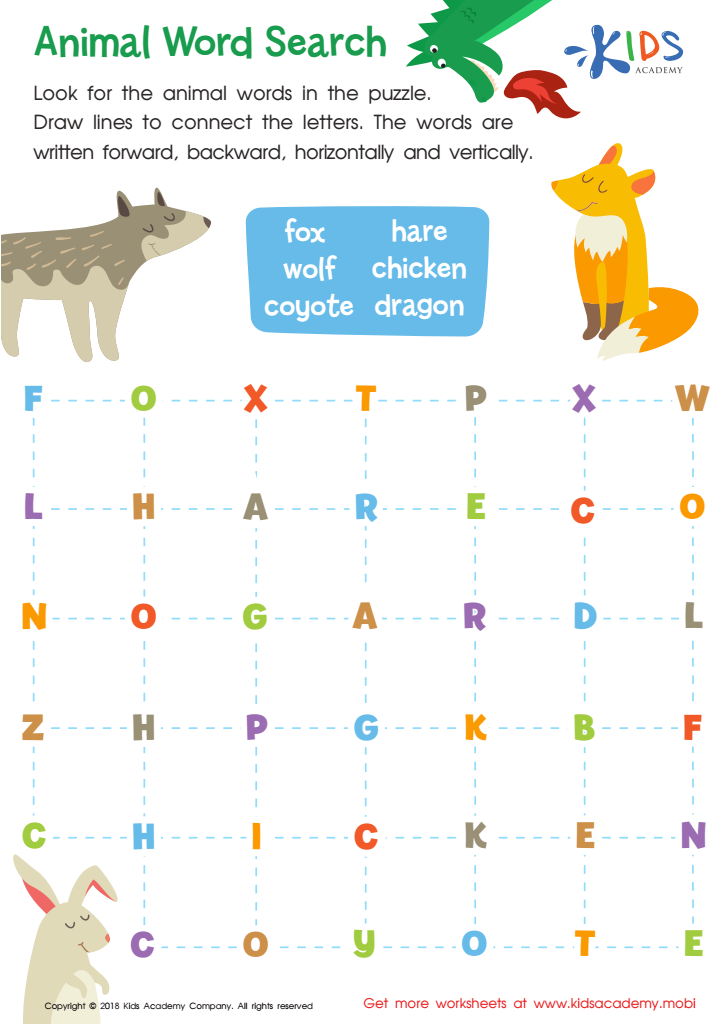Vocabulary Building Normal Animals Worksheets for Ages 6-9
4 filtered results
-
From - To
Discover our engaging Vocabulary Building Normal Animals Worksheets, tailored for children ages 6-9. These educational resources from Kids Academy feature a variety of fun and interactive activities designed to expand young learners' animal knowledge and vocabulary. Our worksheets support key learning objectives, including word recognition, spelling, and understanding animal characteristics and habitats. Perfect for home or classroom use, these tools create an enjoyable learning experience, fostering curiosity and enhancing language skills. Help your child build a strong vocabulary foundation with our expertly crafted worksheets. Visit Kids Academy to start your child's exciting journey into the animal kingdom!


Dinosaur Facts Worksheet


Golden Eagles Worksheet


Arctic Animals Worksheet


Animal Word Search Worksheet
Parents and teachers should prioritize vocabulary building in children aged 6-9 through engaging topics like normal animals. This stage is crucial for linguistic development, as children are rapidly expanding their language skills. Introducing them to vocabulary through animals they might already have some familiarity with makes learning both relatable and exciting.
First, learning about everyday animals enhances a child's descriptive skills, allowing them to discuss and write about their surroundings more effectively. This method promotes both concrete and abstract thinking. They can describe observable traits and also understand concepts like habitats and behaviors.
Second, familiar animals serve as a gateway to broader academic knowledge. Discussing animals naturally leads to subjects like biology, geography, and ecology. For example, talking about a frog introduces ideas about amphibians, wetland ecosystems, and life cycles. These conversations fuel curiosity and a love for learning.
Lastly, vocabulary building through normal animals fosters social and emotional growth. Children gain confidence as they properly use new words in various contexts. This improved communication supports better peer interactions and effective expression of ideas. Additionally, the joy of learning about animals they see in their surroundings or read about in stories creates a positive learning environment.
Overall, integrating animal-related vocabulary into education supports comprehensive cognitive, academic, and social development for young children.

 Assign to My Students
Assign to My Students
















